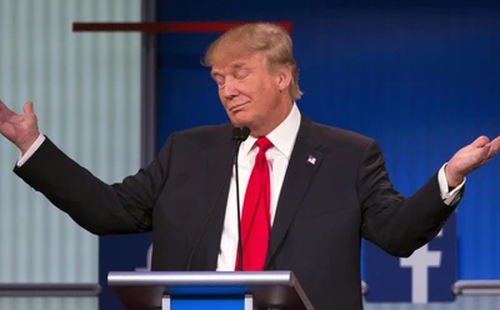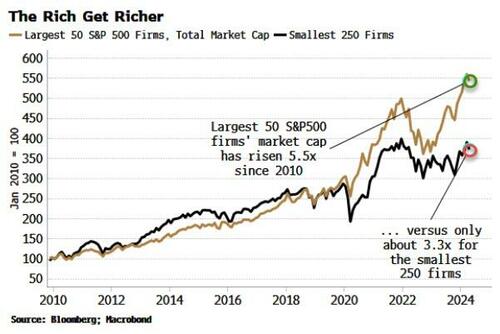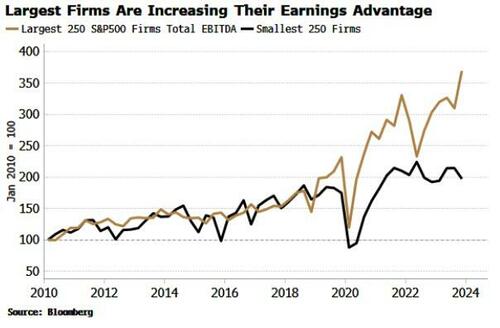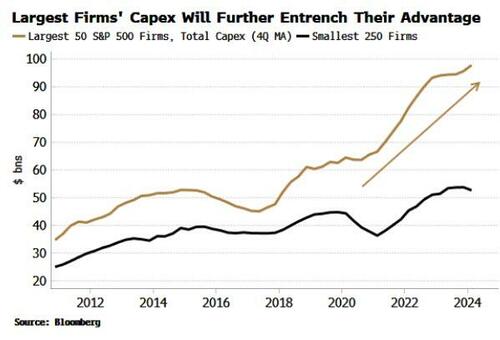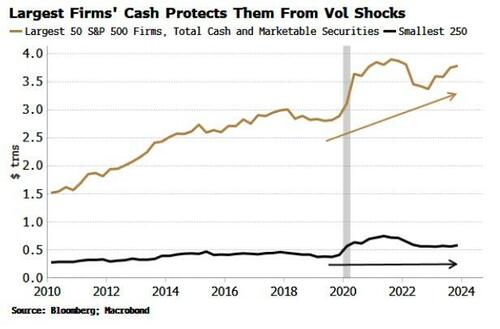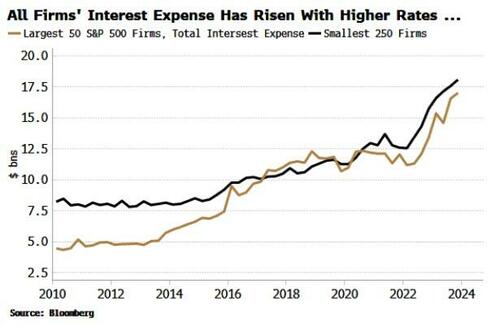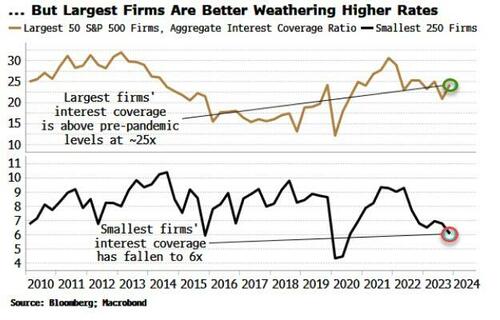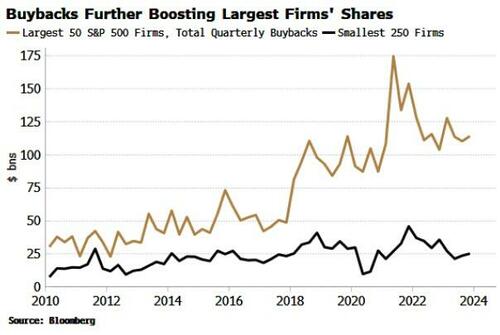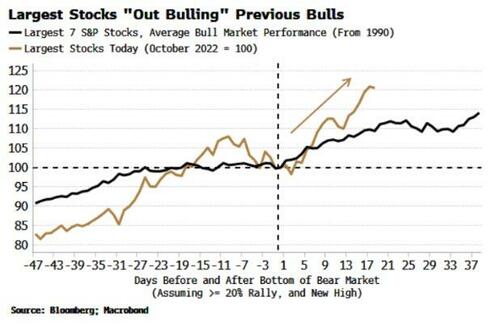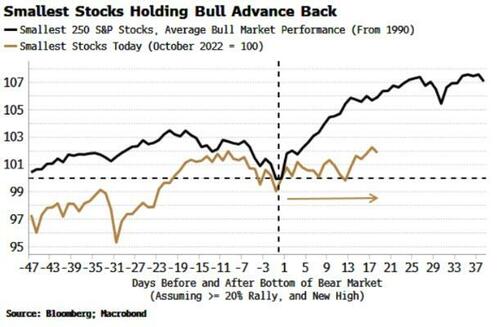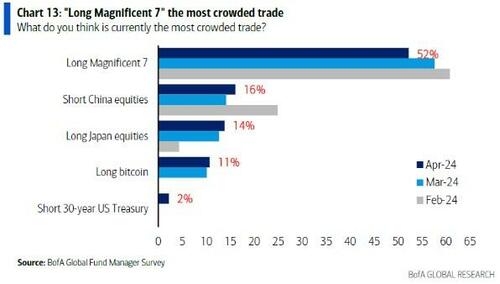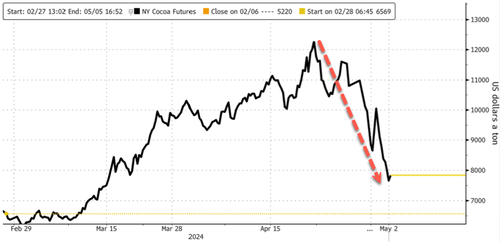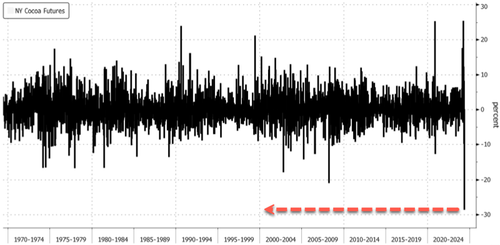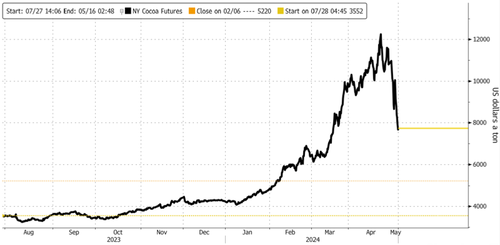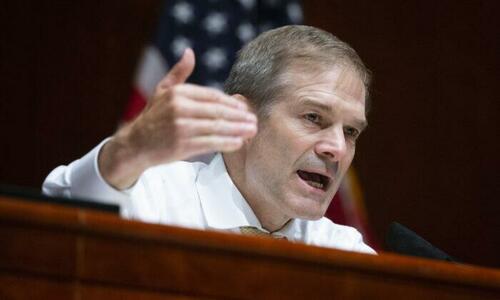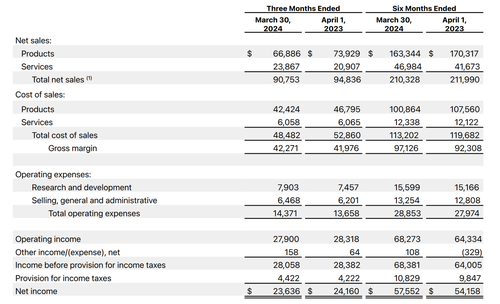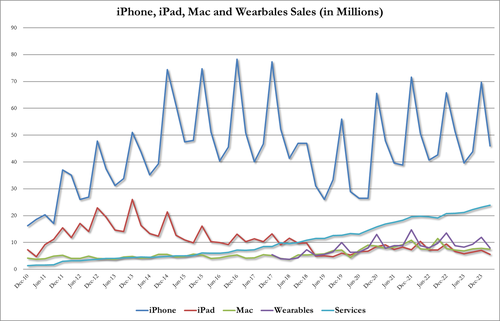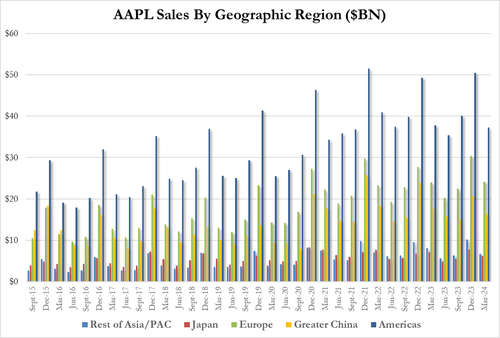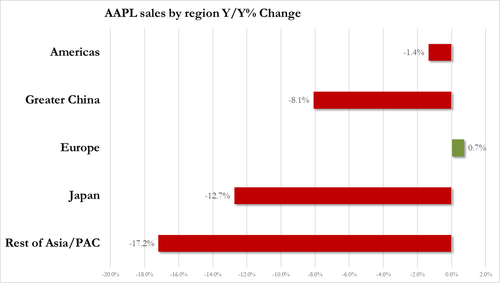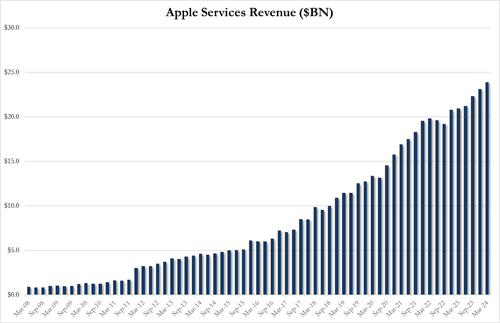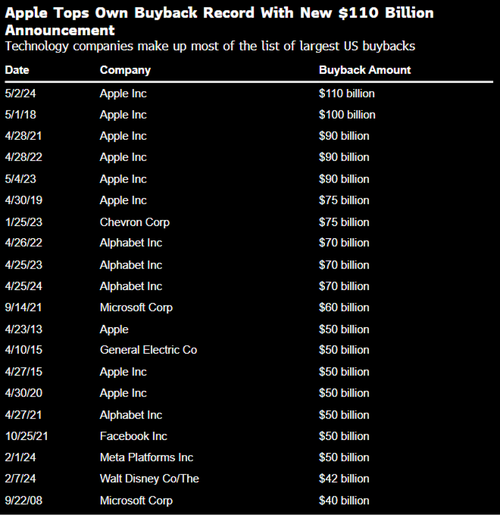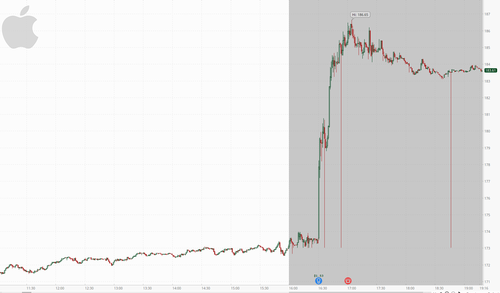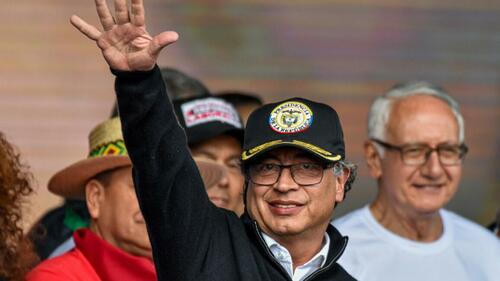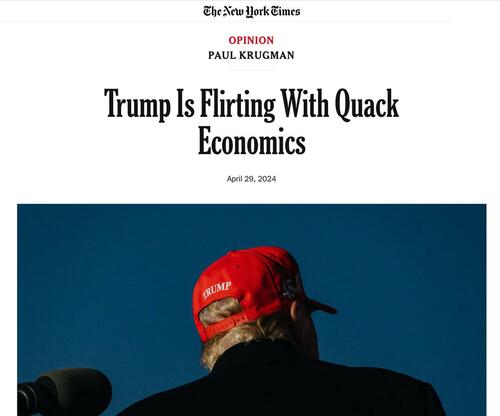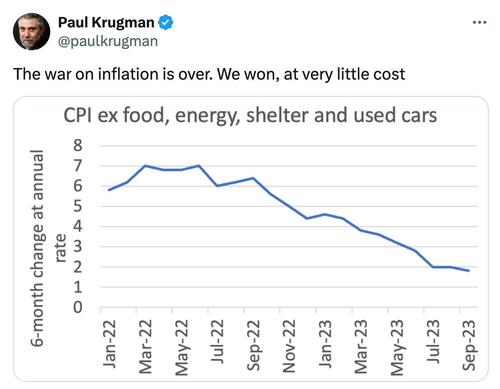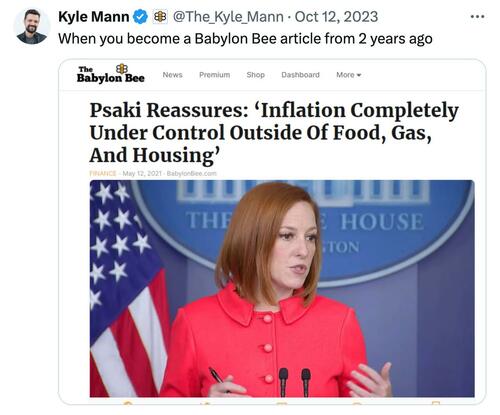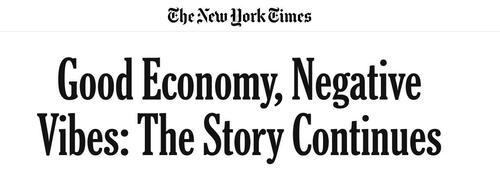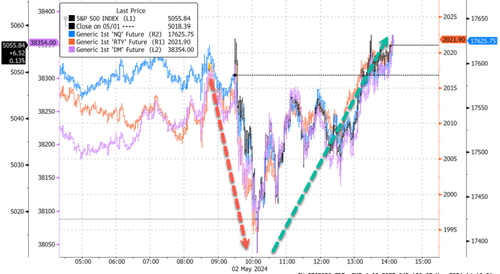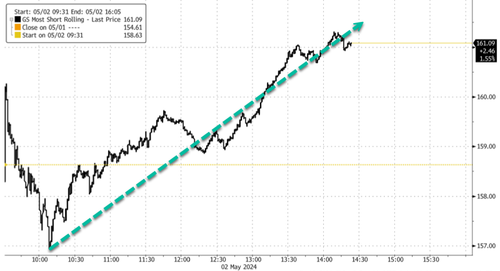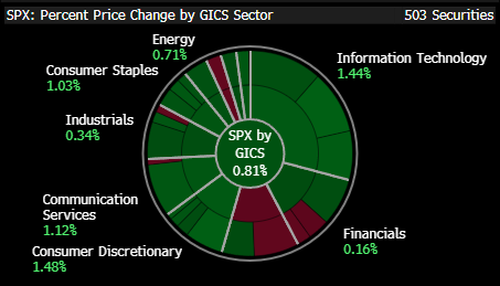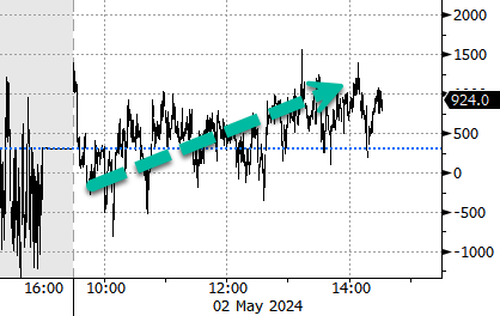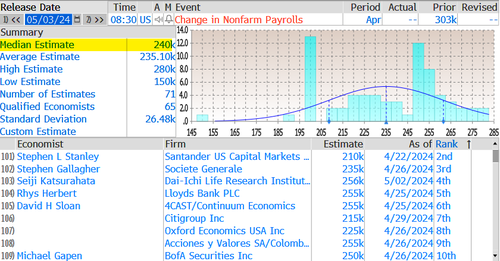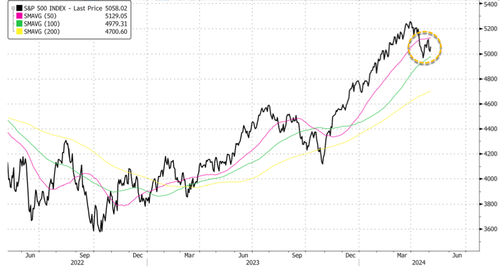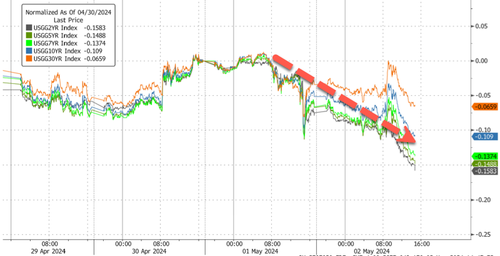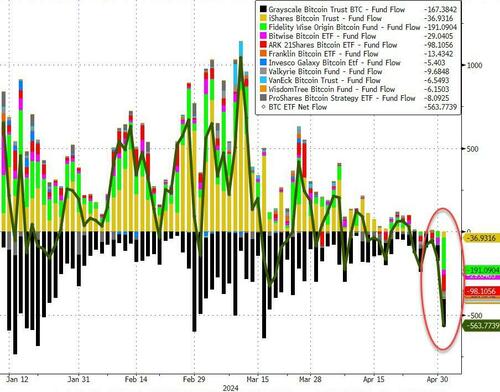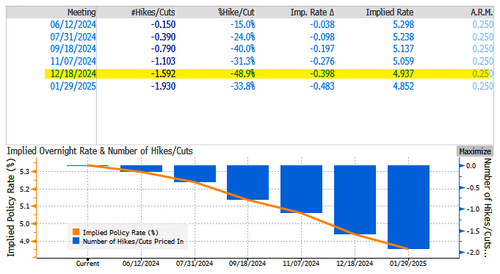“Very Solid”: Trump Scores $1.8 Billion Windfall After Significant Increase In Truth Social Stake
Donald Trump has added roughly $1.8 billion more to his net worth after regulatory filings show that he increased his stake in Truth Social by a significant degree – bringing the former president’s ownership to nearly 65% in Trump Media & Technology Group (TMTG).
Trump secured an additional 36 million shares of TMTG, bringing his stake to 114.75 million shares, according to an April 30 filing with the SEC. According to the latest price of nearly $50 per share, Trump’s stake in TMTG is valued at around $5.7 billion.
The additional $1.8 billion was secured through 36 million additional “earnout shares” granted if TMTG hit certain performance metrics over a certain period, according to an April 15 filing. That said, Trump can’t sell any shares due to a six-month lockup agreement.
As the Epoch Times notes further, TMTG shares have been on a roller-coaster ride since the company listed on Nasdaq last month through a merger with a special purpose acquisition company (SPAC) and was snapped up by Trump supporters and speculators.
‘Very Solid’
Following the merger and initial public offering (IPO) at the end of March, market interest exploded in TMTG, which trades under the ticker symbol DJT. Its stock price soared above $79 per share on its first day of trading, sending the company’s market cap to over $7 billion.
After the initial surge of interest, TMTG shares pulled back to around the $62 mark, where they traded until news broke on April 1 that, in 2023, the company suffered a $58 million loss.
Word of the loss sent its stock price on a downward trajectory, to $22.84 by April 16, which marked a bottom.
Since then, TMTG shares have rallied, with only one meaningful pullback between April 19–23, and are now trading at $49.90 per share, the highest since an April 3 close of $48.81.
Much of the $58 million loss that sent the stock price falling on April 1 appears to be related to an interest expense of $39.4 million on its outstanding debt, according to the 8-K filing. In 2022, the company made a net profit of $50.5 million.
The former president said on April 4 that media fixation on the $58 million loss was misguided. He touted TMTG fundamentals—which he said include over $200 million cash and no debt—as “very solid.”
TMTG CEO Devin Nunes echoed that in an April 1 statement: “Closing out the 2023 financials related to the merger, Truth Social today has no debt and over $200 million in the bank, opening numerous possibilities for expanding and enhancing our platform.”
“We intend to take full advantage of these opportunities to make Truth Social the quintessential free-speech platform for the American people,” he added.
TMTG’s meteoric rise and subsequent wobble sparked massive interest in shorting the stock—meaning betting money on its potential price decline.
Mr. Nunes recently asked Congress to investigate allegations that TMTG stock was being manipulated by traders betting on its downfall.
‘Anomalous Trading’
In a recent letter to top House Republicans, Mr. Nunes urged lawmakers to open an investigation into “anomalous trading” and possible even “unlawful manipulation” of TMTG stock.
Mr. Nunes expressed concern about “naked” selling of TMTG stock, which is the practice of traders selling shares of a company without borrowing them first, according to the letter.
The tech CEO added that the company has become the “single most expensive stock to short in U.S. markets” as of early April, arguing that traders now “have a significant financial incentive to lend non-existent shares” of the stock.
Pressing the issue further, TMTG issued a notice to DJT investors on April 23, highlighting steps they can take to prevent the lending of their shares by brokerage firms for the purpose of short selling.
“TMTG wants to clarify that brokerage firms may facilitate short selling in DJT shares by lending DJT shareholders’ shares held in margin accounts,” the notice reads.
“Through this practice, brokerage firms earn an alternative source of revenue by ‘lending’ shares to sophisticated and institutional investors who are betting that the stock’s price will fall. If the stock price in fact falls, then the brokerage firm and the sophisticated and institutional investors will profit while retail investors will not,” it added.
To prevent their shares from being loaned out for the purpose of short selling, DJT investors were advised to hold their shares in cash accounts at their brokerage firms, rather than in margin accounts.
They should also opt out of any securities lending programs, according to the notice.
Tyler Durden
Thu, 05/02/2024 – 22:40
via ZeroHedge News https://ift.tt/oLE90jm Tyler Durden
